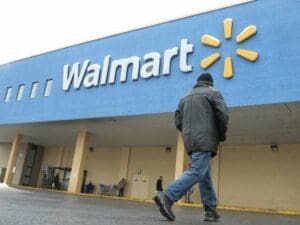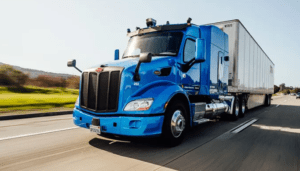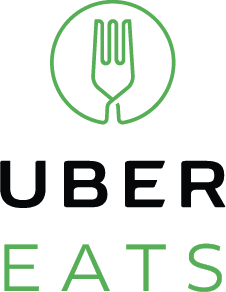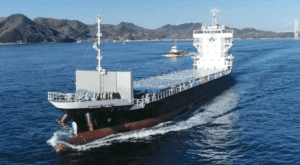 We’ve all been talking about the looming supply chain talent shortage for quite some time. We are seeing it now in terms of truck drivers and warehouse workers, and Walmart is an example of a company that has been trying to get ahead of these shortages by offering higher wages and on-the-job perks. But I just read an article about another labor shortage Walmart is facing: store managers. The talent pool for these positions is drying up, even with an average salary of over $200,000 a year. The problem is that most store managers have been in the position for over a decade, so Walmart is looking to hit it big with recent college grads. The retail giant has launched a program to recruit and train college graduates to become store managers, promising a starting wage of at least $65,000 a year and an accelerated two-year track into the top store job. The program, known as College2Career, launched with two recent graduates this spring and aims to bring nearly 1,000 applicants through this summer. It is certainly an ambitious plan to close the talent gap; it’s also quite the fast track for recent college grads. And now on to this week’s logistics news.
We’ve all been talking about the looming supply chain talent shortage for quite some time. We are seeing it now in terms of truck drivers and warehouse workers, and Walmart is an example of a company that has been trying to get ahead of these shortages by offering higher wages and on-the-job perks. But I just read an article about another labor shortage Walmart is facing: store managers. The talent pool for these positions is drying up, even with an average salary of over $200,000 a year. The problem is that most store managers have been in the position for over a decade, so Walmart is looking to hit it big with recent college grads. The retail giant has launched a program to recruit and train college graduates to become store managers, promising a starting wage of at least $65,000 a year and an accelerated two-year track into the top store job. The program, known as College2Career, launched with two recent graduates this spring and aims to bring nearly 1,000 applicants through this summer. It is certainly an ambitious plan to close the talent gap; it’s also quite the fast track for recent college grads. And now on to this week’s logistics news.
- Autonomous vehicles in the news:
- Wingcopter to deploy 12,000 drones across Africa
- Abbott reaches agreement with FDA to reopen baby formula plant
- The supply chain’s little-known weakest link: railroad workers
- Kroger’s foundation is funding food waste research
- Nations aim to secure supply chains with “friend-shoring”
 The race to win in the autonomous trucking market is certainly heating up. As the driver shortage shows no signs of slowing down, and supply chain disruptions continue to affect industries around the globe, the push for these trucks is becoming stronger. This week, Embark Trucks, an autonomous vehicle company powering self-driving semi-trucks, announced that it had completed a milestone in its autonomous truck testing by successfully completing initial winter conditions tests. According to CEO Alex Rodrigues, Embark has a unique alternative to maps that they call ‘vision map fusion, and it worked very well in the vast majority of the winter conditions that you would expect in the northern United States. Currently, Embark is required to have someone monitoring the truck while it’s self-driving on public roads. The company also announced that is secured a partnership with carrier company U.S. Xpress by adding an Embark fleet to their network.
The race to win in the autonomous trucking market is certainly heating up. As the driver shortage shows no signs of slowing down, and supply chain disruptions continue to affect industries around the globe, the push for these trucks is becoming stronger. This week, Embark Trucks, an autonomous vehicle company powering self-driving semi-trucks, announced that it had completed a milestone in its autonomous truck testing by successfully completing initial winter conditions tests. According to CEO Alex Rodrigues, Embark has a unique alternative to maps that they call ‘vision map fusion, and it worked very well in the vast majority of the winter conditions that you would expect in the northern United States. Currently, Embark is required to have someone monitoring the truck while it’s self-driving on public roads. The company also announced that is secured a partnership with carrier company U.S. Xpress by adding an Embark fleet to their network.
 Uber Eats launched two autonomous delivery pilots in Los Angeles on Monday with Serve Robotics, a robotic sidewalk delivery startup, and Motional, an autonomous vehicle technology company. The Motional partnership was originally announced in December and marks the first time Uber is partnering with an AV fleet provider, as well as the first time Motional is trying its hand at autonomous delivery. And Serve Robotics is actually an Uber spinout. Both of the pilots are starting out small and delivering food from only a few merchants, including, an organic cafe and juicery called Kreation. Serve’s program will focus on shorter trips in West Hollywood. Motional’s will handle longer distance deliveries in Santa Monica. The new programs are a part of a range of new products Uber is launching across its ride-hail and delivery platforms.
Uber Eats launched two autonomous delivery pilots in Los Angeles on Monday with Serve Robotics, a robotic sidewalk delivery startup, and Motional, an autonomous vehicle technology company. The Motional partnership was originally announced in December and marks the first time Uber is partnering with an AV fleet provider, as well as the first time Motional is trying its hand at autonomous delivery. And Serve Robotics is actually an Uber spinout. Both of the pilots are starting out small and delivering food from only a few merchants, including, an organic cafe and juicery called Kreation. Serve’s program will focus on shorter trips in West Hollywood. Motional’s will handle longer distance deliveries in Santa Monica. The new programs are a part of a range of new products Uber is launching across its ride-hail and delivery platforms.
 In our last piece of autonomous vehicle news, the “world’s first” autonomous commercial cargo ship has successfully completed a near-500-mile voyage in the congested waters of Tokyo Bay, traveling without human intervention for 99 percent of the trip. The Suzaka, a 750 gross-ton vessel, was powered by Orca AI, whose software helped the ship avoid hundreds of collisions autonomously. During Suzaka’s 500-mile voyage, the autonomous cargo ship performed 107 collision avoidance maneuvers without the help of a human. The program director suggests that Suzaka avoided between 400-500 other vessels on the water during its outbound trip alone. Orca AI is a developer of safety software platforms designed specifically for maritime vessels. Founded in 2018 by two naval technology experts, the company combines sensors with existing safety systems onboard to help improve the safety and navigation of ships on crowded waterways.
In our last piece of autonomous vehicle news, the “world’s first” autonomous commercial cargo ship has successfully completed a near-500-mile voyage in the congested waters of Tokyo Bay, traveling without human intervention for 99 percent of the trip. The Suzaka, a 750 gross-ton vessel, was powered by Orca AI, whose software helped the ship avoid hundreds of collisions autonomously. During Suzaka’s 500-mile voyage, the autonomous cargo ship performed 107 collision avoidance maneuvers without the help of a human. The program director suggests that Suzaka avoided between 400-500 other vessels on the water during its outbound trip alone. Orca AI is a developer of safety software platforms designed specifically for maritime vessels. Founded in 2018 by two naval technology experts, the company combines sensors with existing safety systems onboard to help improve the safety and navigation of ships on crowded waterways.
 Wingcopter this week announced a partnership with Continental Drones designed to establish a massive delivery network spanning 49 countries across Sub-Saharan Africa. The deal sets the lofty goal of deploying 12,000 of Wingcopter’s 198 drone systems over the course of the next 5 years. Various locales in Africa certainly make sense for such a rollout, with drones potentially offering faster access to important resources, including vaccines, medicines, lab samples and other key medical supplies. The drones are controlled remotely by pilots who can monitor and fly up to 10 systems at once. Emissions are the other big selling point here, with the electric systems offering more efficiency than traditional ground transportation.
Wingcopter this week announced a partnership with Continental Drones designed to establish a massive delivery network spanning 49 countries across Sub-Saharan Africa. The deal sets the lofty goal of deploying 12,000 of Wingcopter’s 198 drone systems over the course of the next 5 years. Various locales in Africa certainly make sense for such a rollout, with drones potentially offering faster access to important resources, including vaccines, medicines, lab samples and other key medical supplies. The drones are controlled remotely by pilots who can monitor and fly up to 10 systems at once. Emissions are the other big selling point here, with the electric systems offering more efficiency than traditional ground transportation.

Shortages of baby formula began to take effect last summer amid supply chain disruptions, product recalls, and inflation. Nationwide the average was 40 percent, building from 31 percent in early April and 11 percent at the end of November. Good news is on the way, however. Abbott, the largest infant formula manufacturer in the US, reached an agreement with the Food and Drug Administration on Monday to reopen the company’s manufacturing plant in Michigan to help ease a nationwide shortage of baby formula, after the facility was closed due to bacterial contamination. Abbott can restart the Sturgis, Michigan, plant within two weeks once the FDA gives the go-ahead, the company said. However, it said it would take six to eight weeks from the start of production for formula to arrive on store shelves.
Supply chain disruptions continue to be commonplace, with a major emphasis placed on the driver and warehouse worker shortage. Well, there is another obstacle that is flying under the radar: a decimated railroad workforce. This shortfall is impeding efforts to transport goods and, in doing so, further hobbling an already-delicate supply chain. Over the last six years, Class I freight railroads — which include BNSF Railway, CSX Transportation, Kansas City Southern Railway, Norfolk Southern and Union Pacific — have hemorrhaged a combined 45,000 workers, according to the Surface Transportation Board. That’s nearly 29 percent of their workforce. This means that the existing workforce is working longer hours, which is leading to more attrition. To correct this concern, railroads may have to take the same path that trucking companies have taken and increase wages for these employees.
Recent studies suggest that an estimated one-third or more of US food waste is coming from households. To combat the problem, the Kroger Co. Zero Hunger | Zero Waste Foundation has teamed up with the Foundation for Food & Agriculture Research (FFAR) to launch the Food Waste Challenge. The Food Waste Challenge will prioritize innovative projects that measure household food waste and encourage collaboration among researchers and practitioners across various sectors and disciplines. Measurement methodologies will consider potential barriers to broad adoption of the proposed methodology, and approaches for overcoming those barriers. Applications must also feature a pilot study to validate the method and identify stakeholders for implementing and analyzing measurements, among other requirements. Founded in 2018, The Kroger Co. Zero Hunger | Zero Waste Foundation is a 501(c)(3) public charity formed to support initiatives that create communities free of hunger and waste.
As war and the pandemic expose the fragility of supply chains, the US and its allies are pursuing a new kind of global trade, one that confines commerce to a circle of trusted nations. This shift in strategy has been referred to as “friend-shoring.” US officials and their allies in Europe, Asia, and the Pacific are promoting and funding new production and trading channels for essential goods that run though friendly nations. This trend comes after a series of disruptions, including the Covid-19 pandemic, Russia’s invasion of Ukraine, and a trade war between the US and China. Promoters of friend-shoring see it as a chance to revamp global supply chains to reduce their reliance on countries with autocratic governments and nonmarket economies, namely China and Russia. They say it is a compromise between full-fledged globalization and isolationism, and between offshoring and domestic production.
That’s all for this week. Enjoy the weekend and the song of the week, Money for Nothing by Dire Straits.

















